Love & Romance
Dud Leaves Home
Posted By: Paul - Sun Apr 03, 2022 -
Comments (0)
Category: Children, Cartoons, Dogs, 1910s, Love & Romance
Happy Valentine’s Day 2022!
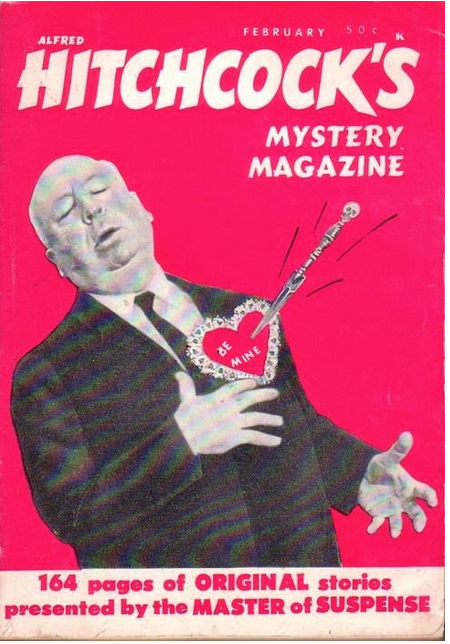
Posted By: Paul - Mon Feb 14, 2022 -
Comments (0)
Category: Death, Holidays, Hollywood, Magazines, Love & Romance
Flirtation Codes of the early 20th Century
What a chore flirtation must have been back then if you had to memorize all these codes.
Philadelphia Inquirer - Oct 8, 1916
Posted By: Alex - Sun Jan 16, 2022 -
Comments (5)
Category: Languages, 1910s, Love & Romance
The Language and Poetry of Flowers
Once upon a time, each flower held a very specific symbolical meaning. You can read about them in this book.So be very careful next time you commission a bouquet for someone. You wouldn't want to include any white roses still in bud, lest you seem "ignorant of love."
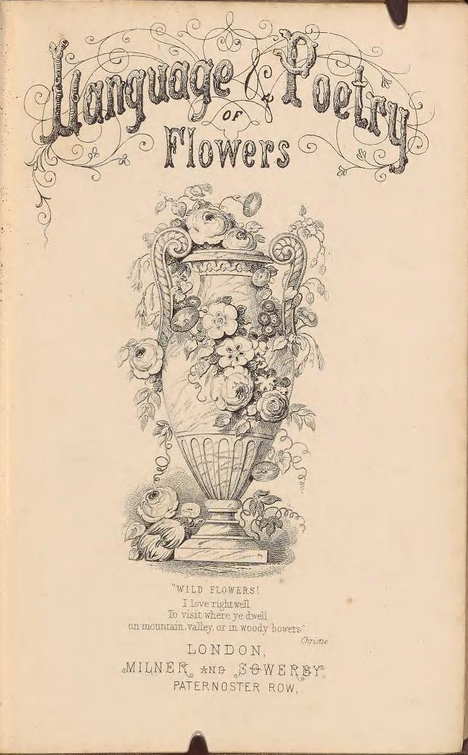
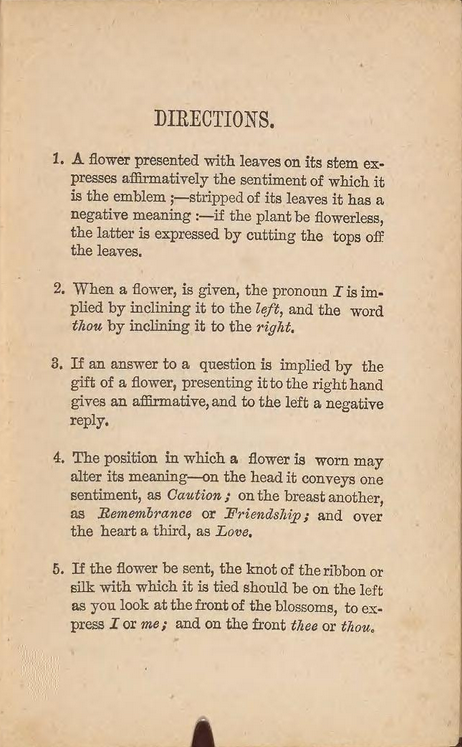
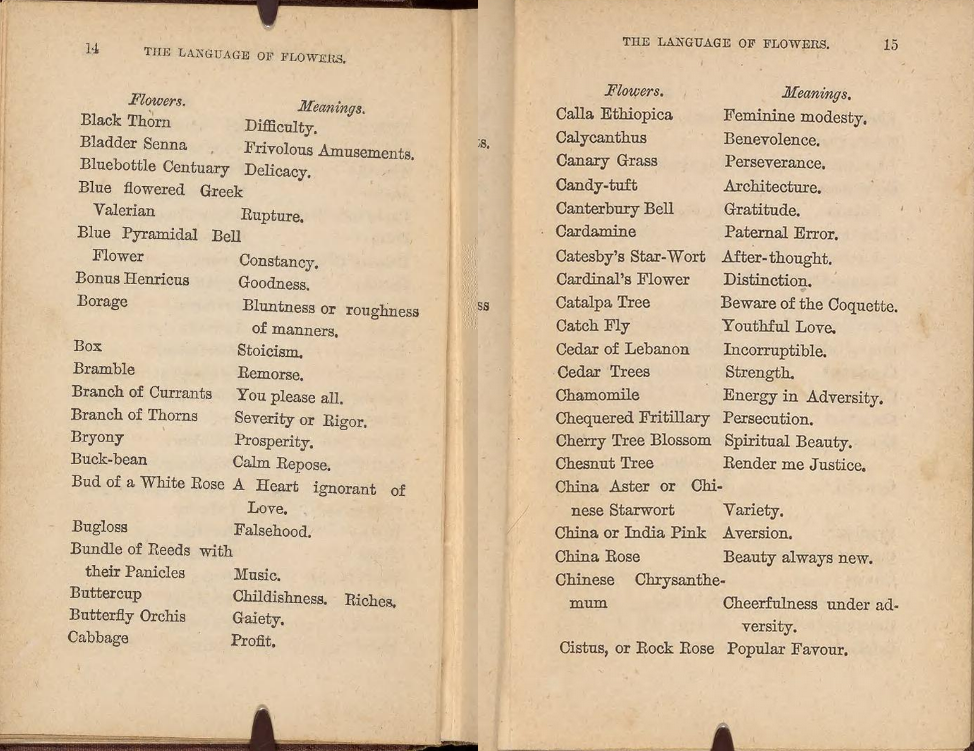
Posted By: Paul - Mon Oct 25, 2021 -
Comments (5)
Category: Innuendo, Double Entendres, Symbolism, Nudge-Nudge-Wink-Wink and Subliminal Messages, Nature, Books, Nineteenth Century, Love & Romance
A Moose for Jessica
In 1987, a wild moose fell in love with what zoologists refer to as a "biologically inappropriate object". His love interest was a cow named Jessica who lived on the Vermont farm of Larry Carrara.For over two months the moose displayed courtship behavior towards Jessica. He followed her all around, would rest his head on her back, or would push hay toward her as a food offering.
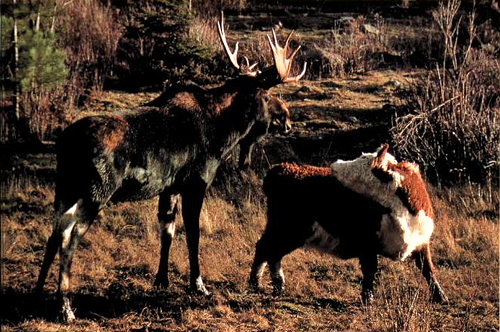
The moose and Jessica
Over 75,000 sightseers came out to Carrara's farm to witness this interspecies romance.
Finally, after 76 days, rutting season came to an end and the moose lost interest in Jessica and wandered back into the wild.
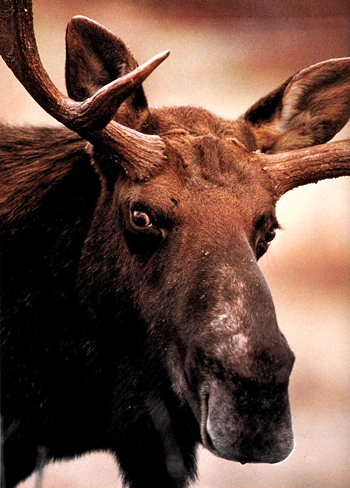
The moose
The romance between the moose and Jessica inspired the book A Moose for Jessica, written by Pat Wakefield with photographs by Larry Carrara. It's available on Amazon, or you can read it for free at archive.org.
More info: wikipedia, New England Living
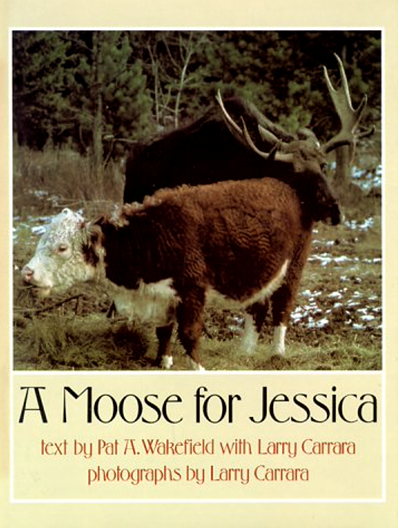
Posted By: Alex - Sun Oct 10, 2021 -
Comments (0)
Category: Animals, Cows, Books, 1980s, Love & Romance
Crook, the Unkissed
Algie R. Crook (or "Alja" Crook, as his name was sometimes spelled) was a professor of mineralogy at Chicago's Northwestern University. His great claim to fame, however, had nothing to do with science. Instead, it was that in April, 1901 he allegedly told his undergraduate class that he had never kissed a woman. More specifically, he reportedly said, "I have never uttered a profane word, never have smoked or chewed tobacco, drank intoxicants, nor hugged or kissed a woman."Given that he was thirty-seven years old at the time, this was considered a remarkable admission. So remarkable that when word of it leaked to the press it became international news.

Great Falls Tribune - May 15, 1901
The media started referring to him as "Crook, The Unkissed." Acquaintances of Crook (or people who claimed to be his acquaintances) readily confirmed the tale, attributing his lack of kisses to his embrace of "austere science." One said, "the scientific atmosphere is inimical to the love germ."
Offers of marriage flooded in, from women hoping to be the one to thaw the professor's icy reserve.

Philadelphia Times - Apr 28, 1901
The French were particularly taken with the story. As reported in the Leavenworth Times (May 8, 1901):
Supposedly the news even reached as far as China where the dowager empress expressed a desire to see him.

Philadelphia Inquirer - Apr 27, 1901
Crook, for his part, was said to be "abashed and humiliated over the gossip the affair has provoked," and also furious at the "tattling undergraduates."
He issued a denial of the allegation, stating, "I have never told any one that I have refrained from hugging or kissing women, for the reason that I consider it nobody's business but my own."
He recalled having advised a student to do as he did — never to kiss, hug, swear, and so forth. And he figured that's how the story must have started. But he insisted that he hadn't said that he had never done these things at all.
However, it was too late. The story was out there and couldn't be taken back. His denial got buried in the back pages of newspapers, if it was printed at all.
In other interviews, Crook asserted that he had kissed female family members, which didn't help his case much since it implied that he had indeed never romantically kissed a woman. Also, a former student recalled that Crook had made similar claims before, noting, "He is a consistent Methodist, and his convictions sometimes cause him some trouble." So I kind of suspect that Crook really did make the no-kissing claim to his class, but denied it later out of embarrassment.
Whatever the case may have been, the tale continued to haunt him. The following year (1902) a group of students at Northwestern formed an "Anti-osculation Society," claiming that they were "following the teachings of Professor Algie R. Crook, the man who never was kissed." They elected him an honorary member.
In 1904 Crook got married, and inevitably this triggered a renewal of the no-kissing story. "Unkissed Man To Wed," reported the papers.

The Hutchinson News - Dec 28, 1904
Crook and his wife eventually had five children together. He died in 1930, at the age of sixty-six, and the kissing story resurfaced in his Chicago Tribune obituary (June 1, 1930). It was, after all, the achievement he was most famous for:
However, the memorial of him in the Journal of the Mineralogical Society of America omitted the kissing story. Nor is it mentioned on the wikipedia page about him.
Posted By: Alex - Fri Oct 08, 2021 -
Comments (6)
Category: Eccentrics, Science, 1900s, Love & Romance
He’d Have To Get Out And Get Under (To Fix Up His Automobile)
"I have a daughter who's hungry for love. She likes to ride every day."
Posted By: Paul - Fri Jul 23, 2021 -
Comments (0)
Category: Innuendo, Double Entendres, Symbolism, Nudge-Nudge-Wink-Wink and Subliminal Messages, Music, 1910s, Cars, Love & Romance
My Honey Chile
"She's got a wooden leg, all stiff at the knee...just a limb from the old apple tree."
Posted By: Paul - Sun Jun 06, 2021 -
Comments (0)
Category: Humor, Music, 1940s, Differently Abled, Handicapped, Challenged, and Otherwise Atypical, Love & Romance
ISO Man who eats with knife
This sounds like a setup for a romcom. City girl advertises for a cowboy who eats his food with a knife. She gets 175 proposals in response.In a movie she would move out west and have all kinds of adventures with her knife-eating man. But I haven't been able to track down what became of Frances Beauvais.

Casper Star-Tribune - Mar 23, 1922

Owensboro Messenger-Inquirer - Apr 6, 1922
Posted By: Alex - Mon Mar 01, 2021 -
Comments (5)
Category: 1920s, Love & Romance
The Cure
Posted By: Paul - Tue Feb 23, 2021 -
Comments (5)
Category: Music, Television, 1960s, Diseases, Love & Romance

| Who We Are |
|---|
| Alex Boese Alex is the creator and curator of the Museum of Hoaxes. He's also the author of various weird, non-fiction, science-themed books such as Elephants on Acid and Psychedelic Apes. Paul Di Filippo Paul has been paid to put weird ideas into fictional form for over thirty years, in his career as a noted science fiction writer. He has recently begun blogging on many curious topics with three fellow writers at The Inferior 4+1. Contact Us |




